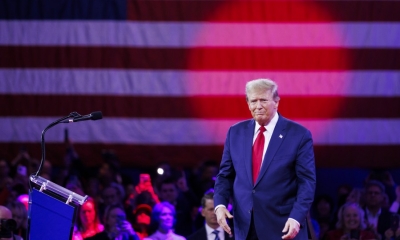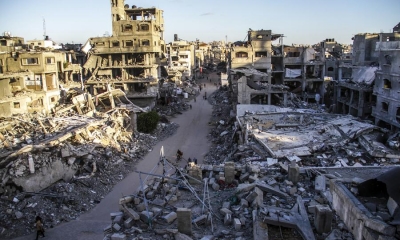Joe Biden’s Democracy Crusade
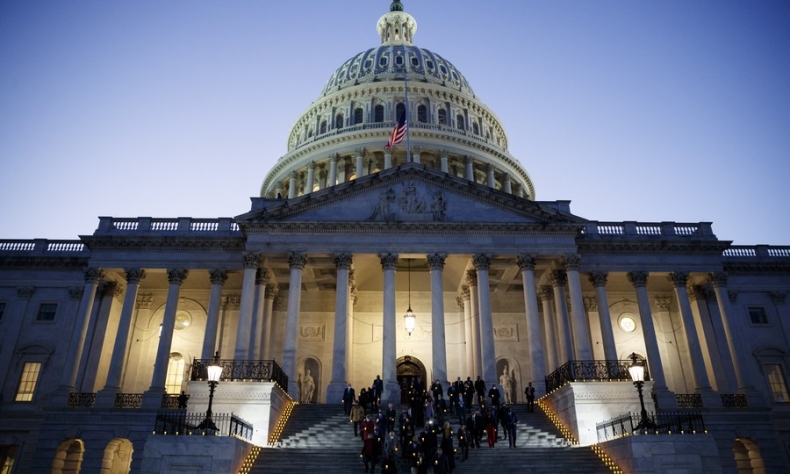
Ideological warfare and political warfare are a dead end in an era in which the international community seeks peace and development.
Will President Joe Biden’s democracy crusade lead to war with China and Russia? His “Democracy Summit” certainly signals a new phase of Cold War but will hot war follow?
Biden says that renewing democracy is “the defining issue of our time”. What about peace and development?
The US Democracy Summit is clearly a project close to Biden’s heart. He has supported the Denmark-based Alliance of Democracies Foundation since its inception in 2017. No doubt his association with that organization inspired his own presidential effort.
In the mid-2000s, the US foreign policy establishment endorsed an elite consensus that called for an updated Cold War against a rising China and a returning Russia. The updated Cold War called for reframing the longstanding post-World War II bloc confrontation between the “Free World” and the “Communist World”.
Why is there a new US global crusade in the name of “Democracy”?
Simply put it is a matter of geopolitics. US national strategy since World War II has aimed at containing the Eurasian landmass, namely Russia and China. Biden’s democracy crusade is a containment and suppression policy. It is a reckless new form of Cold War which could lead to a hot war if things get out of hand.
The decade and a half old framing of a global existential struggle between two distinct blocs was adopted by Biden for his summit which pits “Democratic” states against “Authoritarian” states. Apparently, “Democratic” states are those which support US hegemony and come in various types ranging from “allies” to vassals.

What does Biden mean by “Democracy”?
That is a good question as he did not define what he meant in either his opening speech or closing speech at his summit. He mentioned voting in passing. He talked about economic development. He mentioned human rights. But he failed to produce a definition of what he means by the term democracy.
Is his goal to impose Western-style democracy on the world? What are the criteria, standards, and structures of his democracy? He never said.
Who defines a democracy? North America and Europe? Joe Biden as President of the United States?
Woodrow Wilson led the United States into World War I with the slogan. On April 2, 1917, Wilson went before a Joint Session of Congress to seek a declaration of war against Germany in order that the world “be made safe for democracy.”
Biden’s crusade is not much different from that of fellow Democrat Wilson. So far, Biden’s crusade is at the ideological warfare and political warfare level. But many voices are rising in Washington calling for using military force against Russia over Ukraine and using military force against China over China’s Taiwan.
Is Biden preparing global public opinion for US military action against China and Russia? Or for coercive measures short of war? Or for tightening alliance structures in preparation for war or coercive measures?
Are Americans willing to die for “democracy” in Taiwan or Ukraine? The public in the United States appears oblivious to the implications of the reckless policies and rhetoric of their elected officials in the DC Swamp. Mainstream media is cheerleading for coercive measures if not for war.
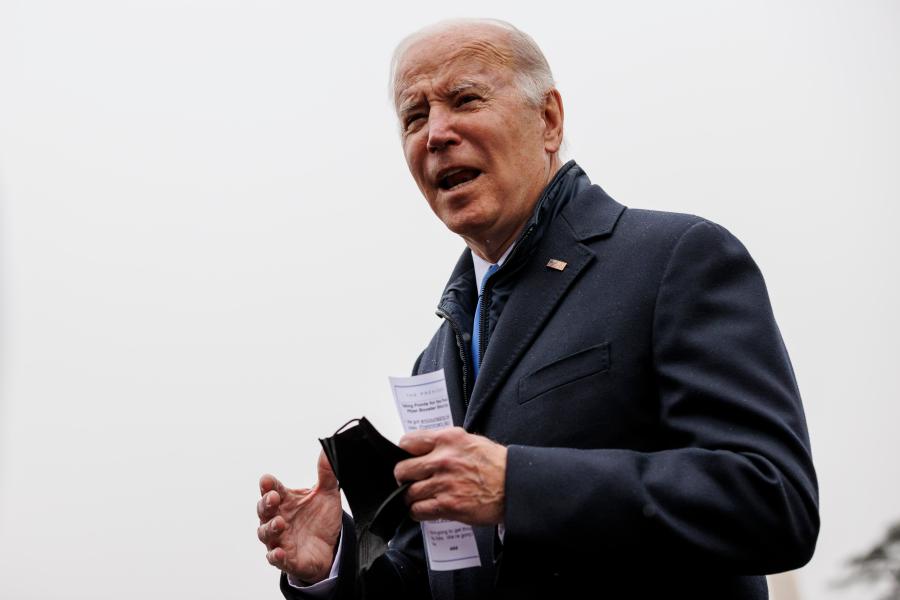
What about international law?
For almost five centuries in the West international law has embodied key concepts such as state sovereignty and noninterference. The first appearance of these legal concepts was in 1555 at the Peace of Augsburg which ended a bloody phase of wars in Europe. After another phase of bloody war, the legal concepts were made the basis of the Peace of Westphalia in 1648.
Both the League of Nations and the follow-on United Nations organizations embraced the ideals and practices of international law. The United Nations today is at the core of the international system and manifests the centuries-old desire for a just and fair international order based on the rule of law.
The United States in recent decades, whether under Democratic or Republican presidents, has rejected international law. It has also rejected the United Nations organization as at the core of the international system. This explains why Washington side steps and end runs the UN system by creating various “coalitions of the willing” and other cliques.
Washington does not want to be held accountable to international law nor does it want to recognize a system of an international organization representing the international community as a whole. This is so because the United States cannot maintain global hegemony if it recognizes international law and organization.
Under traditional international law, states are sovereign and can adopt the internal political and economic models they believe best for themselves. Interference in the internal affairs of one state by another state is deemed against international law. States are regarded as equal in legal terms.
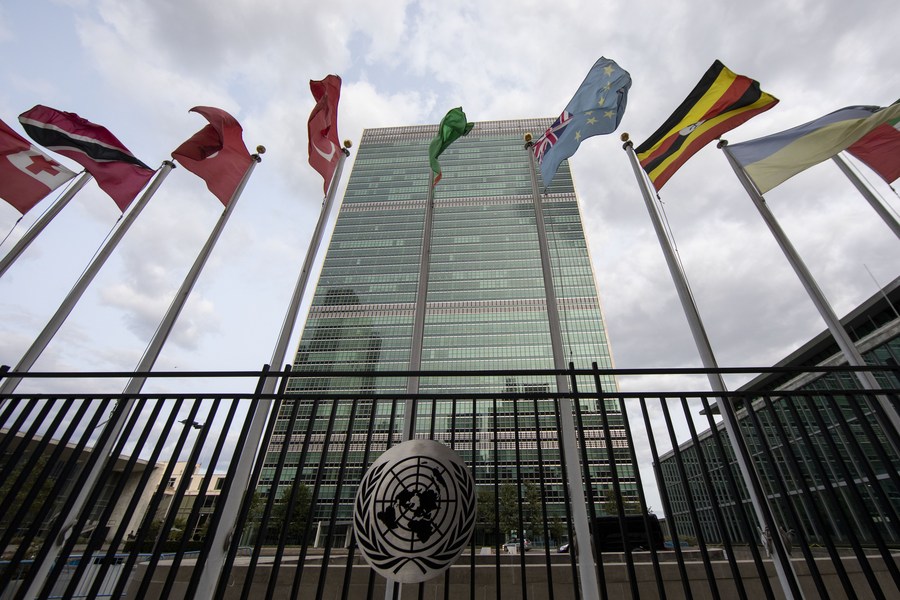
What about the changing international system?
The international system is inexorably evolving toward multipolar, polycentric, and pluralistic order. Power shifts through the centuries and the international system are dynamic and not static. It is filled with contingencies such as unexpected wars, plagues, economic crises, and the like.
In the experience of Europe, coalitions are formed against hegemonic powers. The cases of the coalitions against Louis XIV, Napoleon, the German Kaiser, and Hitler are well known. In today’s international system there is a shift in the constellation of forces.
Critics say Biden’s Democracy Summit and democracy crusade is an attempt by the US and its NATO partners to rally countries for a new phase of Cold War so as to preserve US and Western hegemony. Coercion and confrontation appear to be Washington’s chosen policy to deal with China and Russia. Thus, rallying allies and vassals is taking place and the Democracy Summit is one venue.
Biden stated that there will be a second Democracy Summit in 2023 so ideological warfare and political warfare will apparently continue through his years in office. His legacy would thus seem to be one not of peace but of turmoil.
The United States must drop its new global crusade before more unnecessary global instability and division are created. Ideological warfare and political warfare are a dead end in an era in which the international community seeks peace and development.
The article reflects the author’s opinions, and not necessarily the views of China Focus.
 Facebook
Facebook
 Twitter
Twitter
 Linkedin
Linkedin
 Google +
Google +





